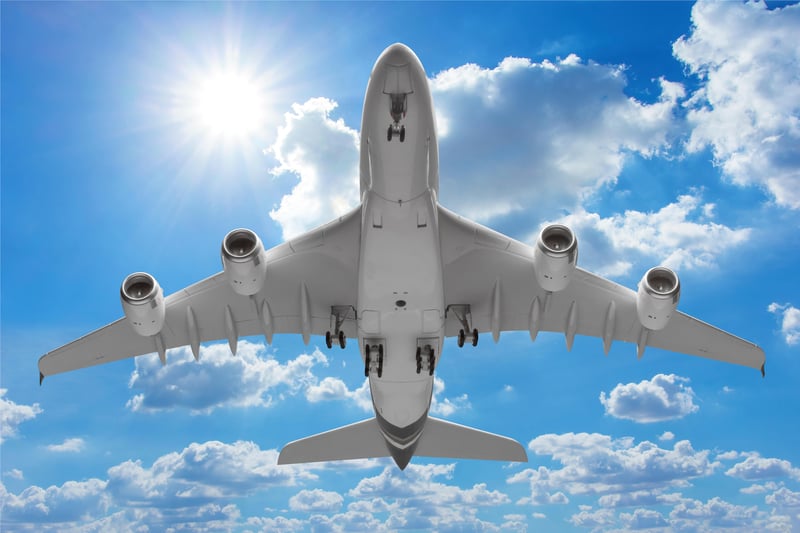Get Healthy!

- Cara Murez
- Posted May 3, 2023
Living Near an Airport Could Mess With Your Sleep
Add airplane noise to the list of issues keeping people up at night, at least for those who live near U.S. airports.
Researchers found that exposure to airplane sounds -- even at moderate levels -- increased the odds of short sleep.
They reported that people exposed to airplane noise levels as low as 45 decibels (dB) tended to sleep fewer than seven hours a night.
Really, 45 dB isn't that loud. A whisper is 30 dB, background noise in a library clocks in at 40 dB, and a standard conversation at home is 50 dB, the study pointed out.
The research team, whose senior author was Junenette Peters, an associate professor of environmental health at Boston University School of Public Health, looked at airplane noise exposure and self-reported sleep disturbance in more than 35,000 people who lived near 90 major U.S. airports.
To assess noise levels, the scientists looked at two metrics every five years between 1995 and 2015. The metrics were a nighttime estimate (Lnight) for airplane noise during sleep and a day-night estimate (DNL) for the average noise level over a 24-hour period. They made a 10 dB adjustment for airplane noise at night when background noise is low.
U.S. Federal Aviation Association (FAA) policies on aircraft noise typically use DNL, with a threshold for significant noise impact being above DNL 65 dB.
The researchers connected these noise measurements using geocoded residential addresses of participants.
Besides finding that the likelihood of short sleep increased as airplane noise exposure rose, the study found that participants living on the West Coast, near a significant cargo airport or a large body of water, and those who reported no hearing loss, were more likely to experience shorter sleep.
"We found surprisingly strong relationships for particular subgroups that we are still trying to understand," said lead author Matthew Bozigar, an assistant professor in the College of Public Health and Human Sciences at Oregon State University.
"For instance, there was a relatively strong signal between aircraft noise and both dimensions of disrupted sleep, short sleep duration, and poor sleep quality, near major cargo airports,"he said in a BU news release.
"There is likely more going on to this story, as cargo operations tend to use larger, older, heavily laden, and therefore noisier aircraft that often fly through the nighttime hours," Bozigar noted. "And the quantity of cargo shipped by air has been steadily increasing over the last couple of decades, possibly linked to more e-commerce. If the trends continue, it could mean more aircraft noise impacts to more groups of people."
While the study linked airport noise and sleep duration, it found no tie between aircraft noise and the quality of sleep.
Bozigar said future research could fill in gaps in knowledge by including additional demographic groups and more detailed noise metrics. Other studies could also measure sleep with activity monitors.
Sleep is important to good health and well-being, researchers pointed out. Poor sleep is linked to heart disease, depression, diabetes, cancer and many other health problems. Most adults should aim for seven to nine hours of nightly sleep, according to the U.S. Centers for Disease Control and Prevention.
Study findings were published recently in Environmental Health Perspectives.
More information
The U.S. Environmental Protection Agency has more on noise pollution.
SOURCE: Boston University School of Public Health, news release, April 28, 2023







